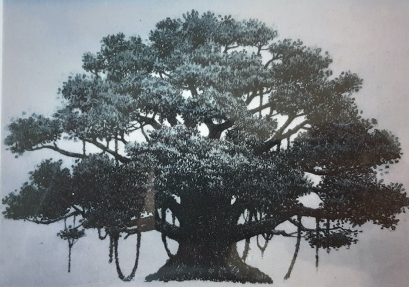Grant for children's book about plants
Dr. Casper van der Kooi recently received a grant from the Lira Fonds to write a popular science book about plants. The grant is worth EUR 37,500. Van der Kooi, researcher at the Groningen Institute for Evolutionary Life Sciences (GELIFES), will write an illustrated children's book about the evolutionary origin of plants and the importance of plants in our daily lives. The brother of Van der Kooi, who is an artist, provides appropriate illustrations. The intention is that the book will be released late 2023 or early 2024.
Now that Van der Kooi is a father himself, he noticed that the vast majority of children's books are about large and cuddly animals, while there are so many nice things to tell about plants. For example, about their intimate and unique relationship with pollinating insects. Examples of topics that will be covered in the book are the first land plants and which plants existed at the time of the dinosaurs. Important developments in the evolution of plants, such as the origin of seeds and flowers, are also included.
Lira Fund
In 2021, the Lira Fonds initiated the Scholarship Scheme for Scientific Books (Beurzenregeling Wetenschappelijke Boeken). The Lira Fonds annually awards four grants to scientists who would like to write a Dutch non-fiction book.

More news
-
29 January 2026
Microplastic research - media hype or real danger?
-
27 January 2026
ERC Proof of Concept grant for Maria Loi
